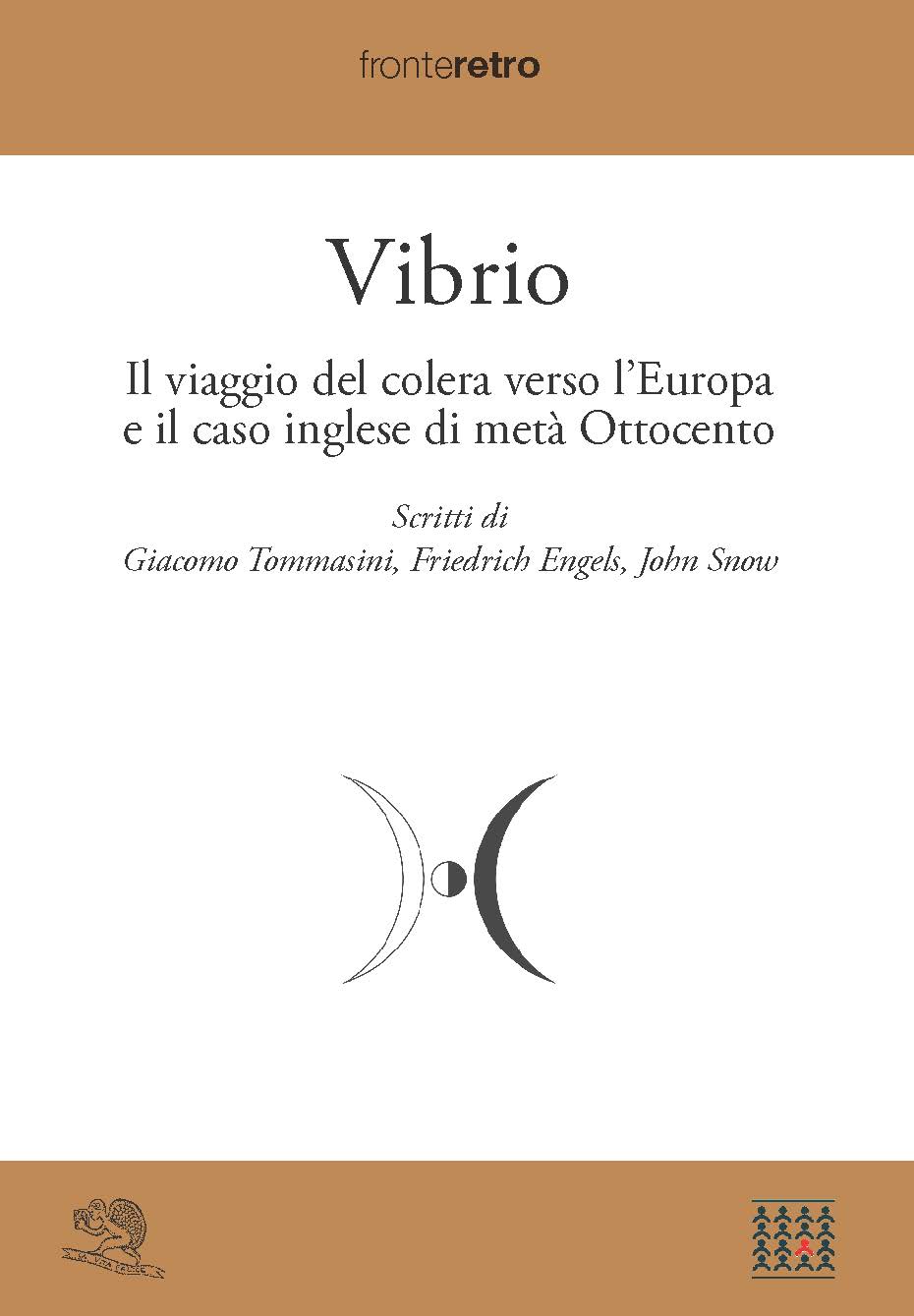
Vibrio: Cholera's Journey Toward Europe and the English Case of the Mid-Nineteenth Century
Written by Giacomo Tommasini, Friedrich Engels, John Snow
In the pages of this volume, three authors propose three highly-diverse perspectives on cholera’s long journey toward Europe: from its roots in India, to Victorian England of the 19th century, where the disease’s epicenter was the large cities undergoing a chaotic, intense burst of industrialization and growth.
Giacomo Tommasini recounts the gripping story of the origins and first spread of the disease. His work Propagazione del «Cholera-Morbus» dal centro dell’Asia sin quasi al mezzodì dell’Europa (1833) clearly traces the routes which the “Asian sickness” took, beginning at the mouth of the Gange and spreading to both China and Europe, touching lands whose names spark imagination and adventure in the mind of the reader.
In the 1830s, cholera reached England, the setting of Friedrich Engel’s essay “The Great Towns” (1845). Engels offers a sharp, detailed analysis of the working class’ living conditions, as well as an exquisite cross-section of the era of John Snow, author of The Damned Water Pump: Cholera in London (1855), which closes the volume. Snow’s research on the “Broad Street Water Pump” is considered to be a pioneering work in the history of epidemiology for the ingenuity of his analysis and the modernity of his methodology.
The data collected in rigorous investigations during the cholera epidemic of 1854 allowed Snow to understand the disease more thoroughly, above all on its transmission and on the role of contaminated water in the diffusion of this mysterious pathogen.
Progress in microbiological methods later proved Snow’s theories to be correct, but his contemporaries rejected the results of his studies, as they conflicted with dominant theory of “miasm” (diffusion through “bad air”).
Authors
Giacomo Tommasini
(Parma, 1768-1846), doctor. Between 1794 and 1815 he was professor of Physiology and Pathology at the University of Parma; he later moved to Bologna, where he taught clinical medicine. Under the Napoleonic government he was inspector of Public Education, secretary of the Council of the Department of Taro, and member of the Council of Public Health. In 1828, along with other professors from the University of Bologna, he was accused of belonging to secret revolutionary societies, but was later tried and acquitted. Subsequently, he returned to Parma where he held several positions of prestige, including Surgeon General of the State and personal doctor of Duchess of Parma Maria Luisa. His works include: Ricerche patologiche sulla febbre di Livorno del 1814, sulla febbre gialla americana e sulle malattie di genio analogo; Della necessità di unire in medicina la filosofia alla osservazione; and Sulla letteratura medica e sull’insegnamento clinico dell’Inghilterra.
Friedrich Engels
(Barmen, 1820-London, 1895), philosopher and politician. Son of a textile manufacturer, he grew up in a pious and conservative environment. In 1842 he moved to Manchester for an apprenticeship in his father’s factory, which brought him to his first description of the themes of class warfare, the fall of the capitalist system, and critique of classical political economy. In 1845 he met Karl Marx, who became his friend for the rest of his life. Following Marx’s death in 1883, he oversaw the publishing of the 2nd and 3rd books of Capital and became the reference point for European Marxists. His works include: The Conditions of the Working Class in England, Socialism: Utopian and Scientific; Origin of the Family, Private Property, and the State; The Holy Family; The German Ideology; and The Communist Manifesto.
John Snow
(York, 1813-London, 1858), doctor. After his studies in York, he completed an apprenticeship in Newcastle-upon-Tyne and, following the first cholera epidemic in England (1831-32), he helped to cure the infirm of the town of Killingworth, thus encountering the disease for the first time. From 1836 to 1844 he studied medicine and received his university degree. He proceeded to write a series of work which made him an authority in the field of anesthesia (being trusted to administer chloroform to Queen Victoria during the birth of her two children) and a pioneer in cholera studies. His works include: Manual of Anesthesia and On the Mode of Communication of Cholera.





